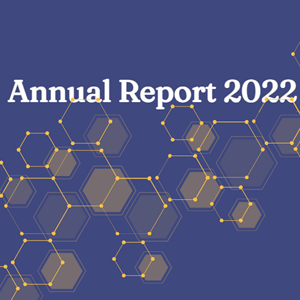NEWS

CEN and CENELEC welcome the European Commission‘s proposal for the Critical Raw Materials Act, published 16 March 2023 and the aim to reinforce EU monitoring capacities and strengthen both the EU value chain (through the identification of mineral resources and raw materials projects in the EU's strategic interest, with strong environmental protection) and the EU external policies on CRMs. The CRMA has provided several references to the of use European Standards, how to make the relationship with international standards and what resources can be allocated to support these activities.

The CEN and CENELEC Annual Report for 2022 is now available, in a renewed, fully digital design.

This CEN Workshop intends to develop one CWA (Workshop Agreement): ”Unmanned aircraft systems — Counter UAS — Testing methodology”

In the nuclear industry, specific design and construction codes provide a set of essential engineering tools for the design, construction, and integration of nuclear high safety class components and systems.

Standards are everywhere in our lives, and they help us live better. To help say this, UNI, the Italian National Standardization Body, has received an exceptional celebrity endorsement: Giovanni Storti (from the famous Italian comedy group Aldo, Giovanni and Giacomo), is the leading actor in UNI’s new awareness campaign on the role of standards in everyday life.

CEN and CENELEC are happy to support the EU Product Safety Award, organised by the European Commission. The Award celebrates innovative business initiatives and research that increase the safety of consumers.

CEN and CENELEC have developed a position paper on the proposed Net-Zero Industry Act. This document has been written in response to the consultation launched by the European Commission on 20 March 2023. CEN and CENELEC believe that European standards will be a vital tool to meet the high ambitions of increasing strategic net-zero technology production in Europe set by the Net-Zero Industry Act.

A new macroeconomic study reveals the substantial benefits of standards in fostering economic growth. Looking at the evidence from six Northern European countries, the study finds that 25 % of labour productivity growth in the past decades is associated with increased standardization as well as 9 % of total exports growth.

The application of (photo)electrocatalytical technologies for the reduction of CO2 to CO holds immense relevance for our current and future society with regard to sustainable methods to mitigate CO2 levels in the atmosphere and to reduce the dependence on fossil feedstocks. Electrocatalysis offers a promising solution by using renewable energy sources, such as solar or wind, to drive the electrochemical conversion of CO2 into CO. This process not only helps in the utilization of CO2 as a valuable feedstock but also offers a viable pathway towards carbon neutrality.

An open call for experts, closing on 11 September 2023, has been launched by SBS to ensure that the European SME position will be represented in Technical Committees, Sub-Committees and Working Groups at CEN, CENELEC, ETSI, ISO and IEC.